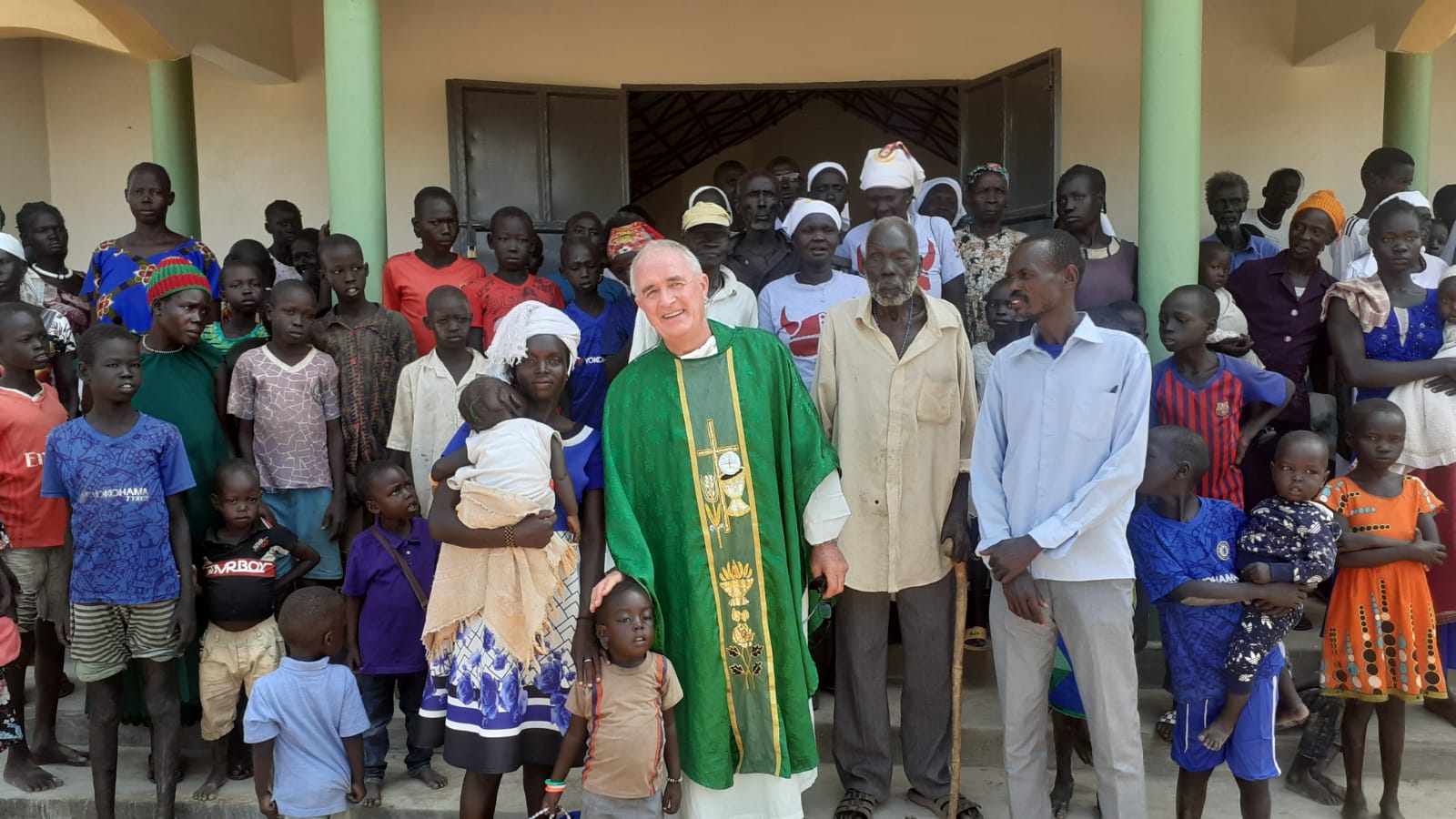WITH the COP27 closing with a less-than-satisfying agreement recently, one local priest has been speaking of his life on the front line of the climate crisis, working with communities in one of the countries most impacted by global warming on the planet.
Fr John Skinnader hails from Emyvale in Co Monaghan but is well known around Fermanagh, having served in the county before joining missionary work in Africa. In the past he has worked on the border between Rwanda and Burundi, following the genocide in the 1990s and in Ethiopia.
For the past ten years he has been working in South Sudan, officially the newest country in the world.
“It’s a country that was created around ten years ago because they always saw themselves as different from the Muslim north and they wanted to create a place for themselves with a Christian ethos,” Fr John explained.
“They fought a war for 50 years and eventually they got independence just over 10 years ago.
“When they got independence the bishops’ conference in Sudan and South Sudan asked could congregations send experienced missionaries to come back into South Sudan and help to rebuild the education structures.”
Decades of conflict, followed by a post-independence civil war – much like Ireland after 1922, Fr John noted – had already taken its toll on the people of South Sudan, where poverty and disease have plagued the population, and now the rapidly changing global climate has been adding to the devastation.
According to the United Nations two-thirds of the population, nearly eight million people, are at risk of famine.
The World Food Program (WFP) recently stated the country was “on the frontlines of the climate crisis.” Swinging from prolonged drought to powerful floods, families are loosing their homes, cattle and fields on a daily basis.
“You’re talking about extremes where people have been flooded that have not been flooded before by the Nile. Very, very heavy rains,” said Fr John, pictured left.
“Then you have extremes with what we call a green famine, where the crops will grow to a certain height then the rains won’t come to finish them off. They wither and die.”
Fr John, a Spiritan priest, said the war in Ukraine had also been impacting efforts to help, with the WFP no longer distributing food in many areas.
“People are walking around to see where they can get food. All the wild animals have been killed now. They are depending a lot on water lilies for food,” he said.
Noting the Spiritans were – among many other initiatives – working in education, were providing two meals a day for hundreds of families, and were building bore holes for water, which communities were using not just for drinking and cooking but also to irrigate crops, Fr John said the devastation was particularly impacting children.
“One of the things you’d find with hunger and all of that is you don’t see kids running around playing as much. It’s less joyful,” he said. “The mothers, because they are a very proud people, their mothers try to teach them not to cry because of hunger.
Fr John said Mary’s Meals had been helping their work providing food for schoolchildren, meaning they could concentrate better in class, and added anyone who wished to help could support the work of the Spiritans.
To read more.. Subscribe to current edition
Receive quality journalism wherever you are, on any device. Keep up to date from the comfort of your own home with a digital subscription.
Any time | Any place | Anywhere










